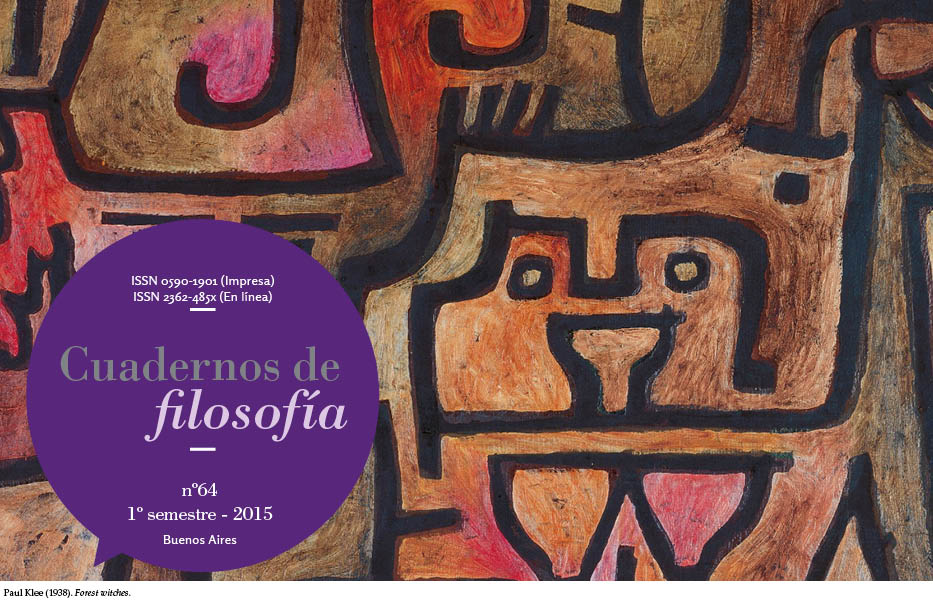Por qué sólo las almas humanas son humanas. Proclo, Platón y la tradición platónica sobre el alma tripartita
Abstract
When Proclus tries to clarify what is it in a human soul that makes it properly human, he draws (in In Plat. Tim. II) an explanation which combines both the Platonic way of understanding the tripartite soul with some kind of re-translation of this schema in Aristotelian mould. In this pages I give a brief overview of some steps given by the Platonic tradition in order to strengthen this development of the tripartite schema built in Republic IV (an original Platonic theory of action) in a Peripatetic one (which observes rather the different levels of organic nature). Then, I return to Proclus, to his commentary on the final pages of Timaeus –a text that is only preserved in an Arabic translation--, in order to show that Proclus is clearly conscious of the hermeneutical transformation made by the Platonic tradition on the original model, which he asserts to be previous and at least so functional as the Aristotelian one.Downloads
Los autores/as que publiquen en esta revista aceptan las siguientes condiciones:
Los/as autores/as [traductores/as] conservan los derechos de autor/a y ceden a la revista el derecho de la primera publicación, con el trabajo registrado con Licencia Creative Commons Atribución-NoComercial-CompartirIgual 4.0 Internacional, que permite a terceros utilizar lo publicado siempre que mencionen la autoría del trabajo y a la primera publicación en esta revista.
Los/as autores/as pueden realizar otros acuerdos contractuales independientes y adicionales para la distribución no exclusiva de la versión del artículo publicado en esta revista (p. ej., incluirlo en un repositorio institucional o publicarlo en un libro) siempre que indiquen claramente que el trabajo se publicó por primera vez en esta revista.
Se permite y recomienda a los/as autores/as a publicar su trabajo en Internet (por ejemplo en páginas institucionales o personales).
Políticas de detección de plagio
La colaboración de los y las editores/as, autores/as y evaluadores/as de esta revista y la guía de ética de los procesos editoriales se rige por los Principios de transparencia y buena práctica en publicaciones académicas del Committee on Publication Ethics (COPE) disponible aquí.
Todos los artículos enviados a esta publicación serán supervisados mediante una búsqueda online.







